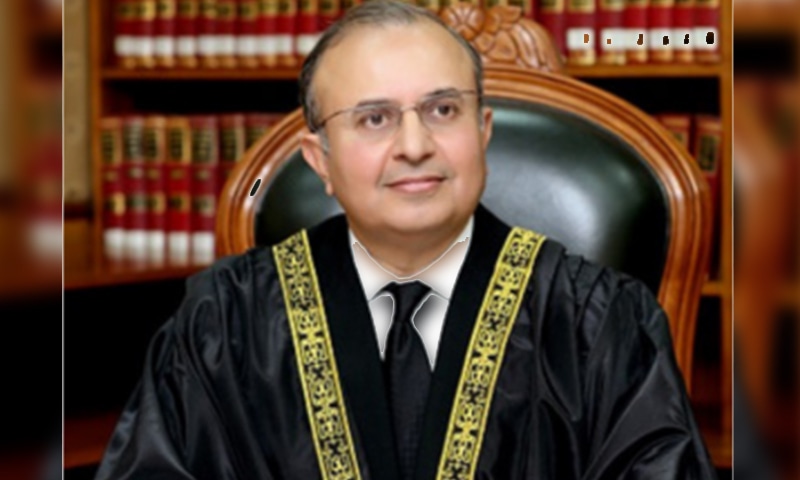ISLAMABAD: The Supreme Court held on Wednesday that a woman’s right to be “maintained” by her husband was absolute under Islamic law as long as she remains “faithful and discharges her own matrimonial obligations”.
“A Muslim husband is bound to maintain his wife even if no term in this regard is agreed to between them at the time of marriage or she can maintain herself out of her own resources,” observed Justice Syed Mansoor Ali Shah in a judgement he wrote.
Justice Shah was a member of a three-judge Supreme Court bench, headed by Chief Justice Umar Ata Bandial, which had taken up an appeal moved by Haseenullah against a March 9, 2020, Peshawar High Court (PHC) ruling.
The controversy at hand concerns a case filed by Ms Naheed Begum — wife of Haseenullah — in a family court at Charsadda for the recovery of her dower: four kanal of agricultural land which was mentioned in column no.16 of her Nikahnama as well as maintenance for herself and her five minor children. The husband had contracted a second marriage and was living with his second wife.
Justice Mansoor says payment of dower to bride intrinsic part of Muslim marriage
The court decreed the suit to the extent of her claim for maintenance of her minor children, but rejected her claims for recovery of her dower and maintenance. A district court dismissed her appeal, upholding the verdict of the family court.
She then approached the PHC, which reversed the judgements of the courts and decreed her claims of dower and maintenance. Consequently, the petitioner approached the Supreme Court through an appeal.
In the judgement, Justice Shah emphasised the Holy Quran enunciates that men were the protectors and maintainers of women because God has given one more strength than the other and because they support them with their money.
Moreover, the Holy Prophet (PBUH) has also instructed Muslim men to provide their wives with maintenance in a fitting manner and declared it to be a woman’s right, the judgement said. But the judge regretted that the petitioner, instead of paying maintenance and giving the dower to the respondent willingly and graciously, has been evading his legal as well as moral obligation on one or the other pretext.
First, he totally denied to have agreed to and mentioning in Nikahnama, the term of giving four Kanal agricultural land as dower to his wife and later started opposing it with the argument that it was an alternative to be given only if seven tola gold ornaments mentioned in column no.13 of the Nikahnama had not been paid.
“This is a male-dominated society; men since ages have always been more concerned about their rights by using religion for their own convenience, especially in matrimonial matters, but forget religion when it comes to their duty and obligation towards women,” Justice Shah observed.
Justice Shah also traced the history of dower by recalling how payment of dower (mahr) at the time of marriage was a customary practice in Arabia before the advent of Islam. This practice of paying dower as a bride-price to male guardians of the bride was reformed by Islam through the Quranic commands of paying dower as the bride-wealth to the bride herself, who becomes the sole owner of it, he added.
The Holy Quran also forbids the believers to take back anything from their wives out of the paid dower even it be a great sum, Justice Shah observed. In Islam, the payment of dower to a bride at marriage was an obligation that was imposed by God Almighty, and was thus an intrinsic and integral part of a Muslim marriage.
This case where a husband disputes the payment of maintenance and dower to his wife, provides an occasion to underline the principles, duties and obligations of a husband towards his wife under Islamic law with regard to maintenance and dower, Justice Shah observed.
“It is regrettable that the petitioner, an educated person who belongs to the noble profession of teaching, does not realise his obligation to pay the dower agreed upon by him at the time of marriage, not only under the law of the land but also under the commandments of the God Almighty given in the Holy Quran to persons who proclaim to be Muslim.
Justice Shah observed that the petition moved by Haseenullah was baseless and therefore dismissed.
Published in Dawn, August 4th, 2022










































